Ángel León: The Poetry of the Sea
A dialogue with the revolutionary “Chef of the Sea” around marine grain, fish mortadella and the future of waters.
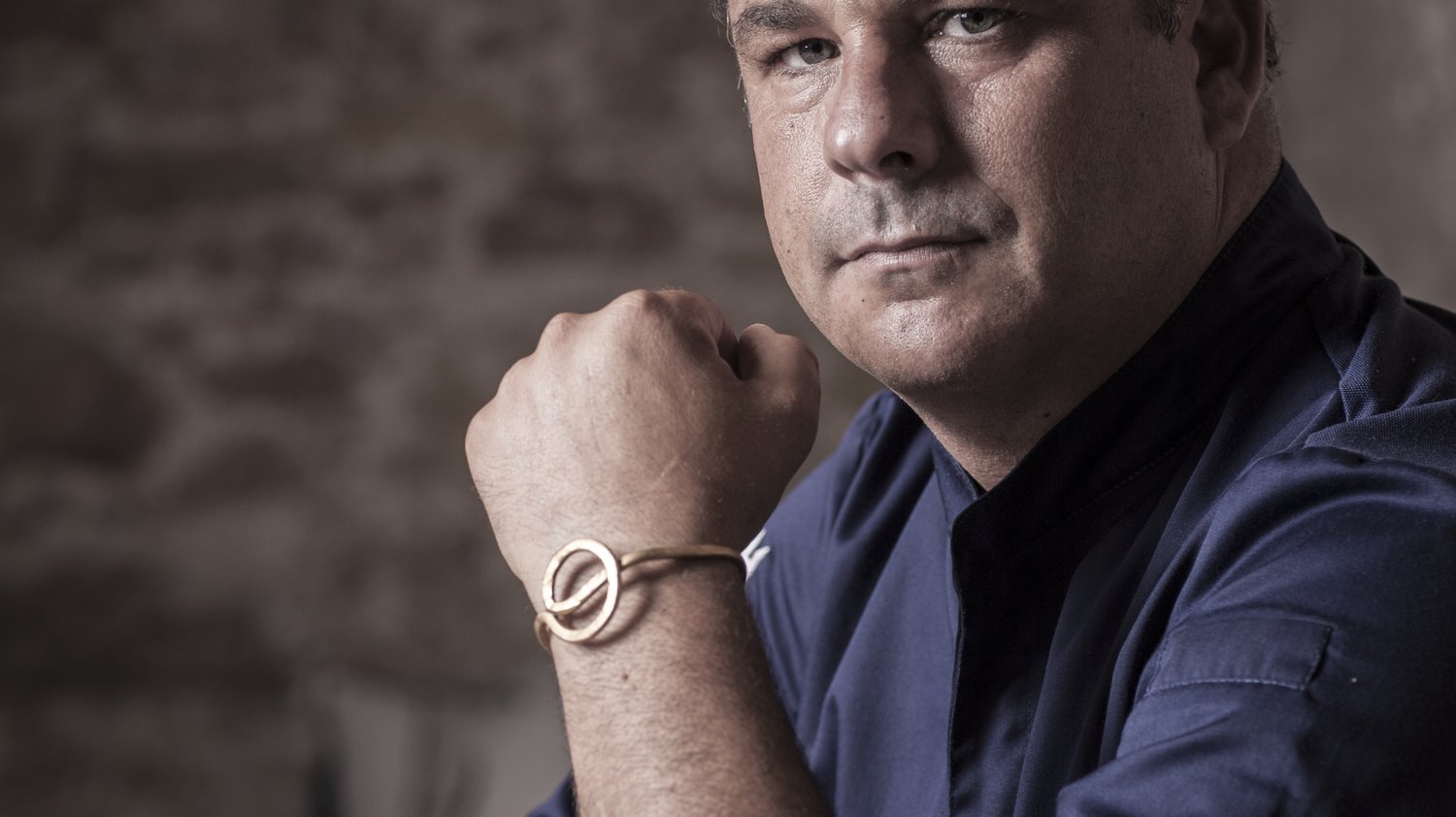
The sea has always been fascinating, majestic and obscure, poetic yet scary, hitting us in the deepness of our soul. Sublime in the aesthetic meaning therefore able to bring you, thanks to its ineffability, to a state of ecstasy and overwhelm towards the infinte power of nature. And Ángel León carries the sea in its blood.
The chef of the beautiful three Michelin starred Aponiente, located in an old Eighteenth Century tide mill, demonstrated how gastronomically unknown the underwater world still is. Plankton, fish charcuterie, the revolutionary marine grain and the edible “Sea Light”, presented at Harvard a few years ago, are just the top of a continuous humanistic and scientific research, avant-garde and philosophical, entitling him as one of the most important people for our Planet’s future.
We talked about his blue passion, about innovation and environmental impact because, let’s not forget, we are deleting this poetry.
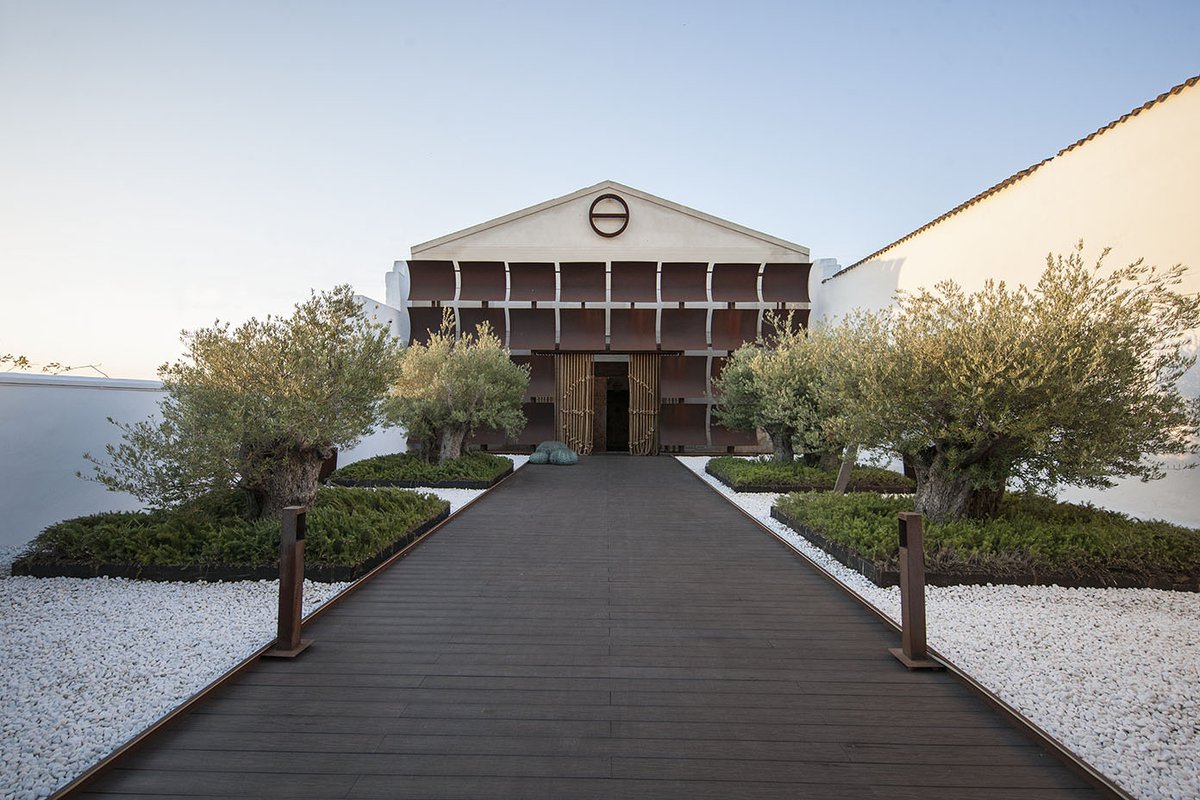
Why is the sea so important for you?
I have a special relationship with this element, it is a sort of savior for me.
With my father we often used to fish around the Bay of Cádiz, bringing back home super fresh fishes. I was always offering myself to clean the catch, it was a sort of ritual: feeling the smoothness of the scales, appreciating the pungent aroma and opening the belly, in order to check what the fish ate and prepare a better bait.
My attitude didn’t allow me to like studies much, but the sea was my escape, it gave me relief and I was resting. It communicates me an ancient quietness, a comforting dimension.
The waves, the rhythm, the sounds, singing a soul-warming sweet and salty melody.
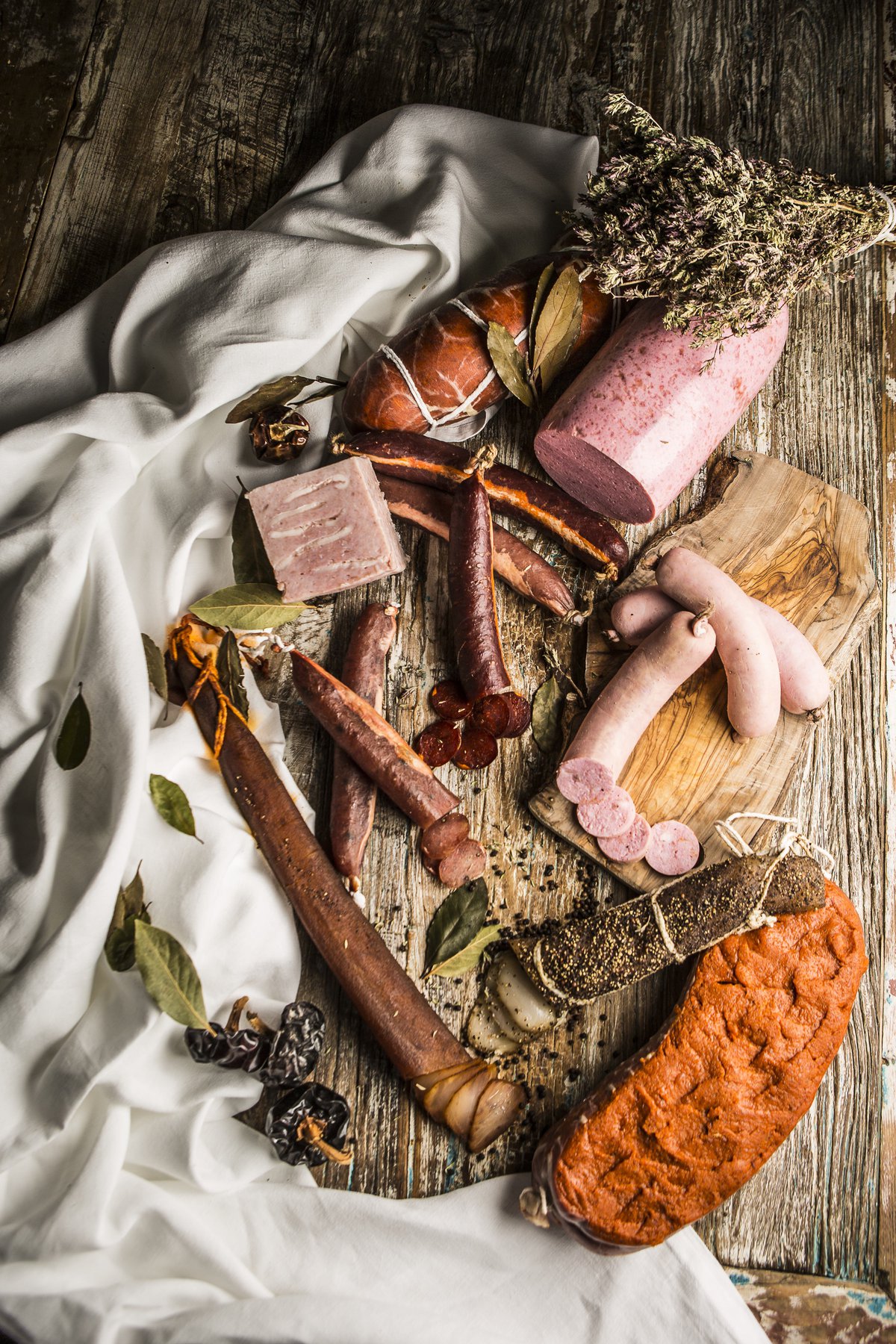
How did the Aponiente cuisine take shape?
Dedicating my career to this water universe felt natural for me. Many people thought we would fail, we would never have enough variety to work with and therefore be unable to offer an innovative ever-changing menu. But they were wrong.
Earth surface is mostly covered by salty waters, all of them extremely unknown as potential produce sources.
In fact, possibilities are endless and we send this message through serious-playful parallelisms with the mainland world, like our fish charcuterie. Sea-bass mortadella, mullet chorizo, tuna ham: we cure them with the same spices and shapes, but we don’t use meat.
We force the comparison, we oblige to rethink fish with respect and we keep our mind open to unexpected ideas, like the sea vegetal menu entirely without animal protein and the pursuit of aquatic gardens.
Opening Aponiente meant to give a new life to this abandoned mill, one of the largest in Europe, and reshape the conception of “eating fish”, finding ourselves in front of many bizarre and extremely interesting ingredients, such as the “marine grain”.
We strictly follow seasonality and crown biodiversity as the only possible instrument to reach a truly sustainable alimentation.
Marine grain: a ground-breaking discover for human nutrition that could help changing the destiny of Earth. Could you tell us more?
A few years ago, I read a 1973 “Science” article on how the “Zostera marina” plant was a fundamental part of the Seri’s diet [Mexican indigenous population].
This eelgrass was populating our waters, but was never been cultivated in a controlled way. I was shocked, I couldn’t hold myself: along with the R&D team and few scientists we immediately started long researches, studying for more than five years the genetic and nutritional aspects of it and presenting our conclusions to FAO.
For the first time in history we managed to farm this plant, thinking of its possible applications to human diet.
With our sea garden, located in the “Bahía de Cádiz Natural Park”, we understand this outstandingly precious treasure, aiming to scale the project, dreaming of a seed bank to enlarge the production worldwide.
The advantages of this “superfood” are countless. For instance it requires only salty waters, making it perfect to save extremely scarce resources such as fresh water and land. It is also a great friend of marine creatures, helps biodiversity, creates life. It has enormous advantages for the environments and protects the coasts. Its massive yield can potentially lead to new businesses and employment, it absorbs CO2 and it’s extremely beneficial for humans alimentation, way more than traditional cereals. It can be used as it is, but also to produce flour and the consequent products.
The impact of this jewel on our diet could be decisive for the fight against climate change and humanitarian crisis, the opportunity is too big to let it slip away.
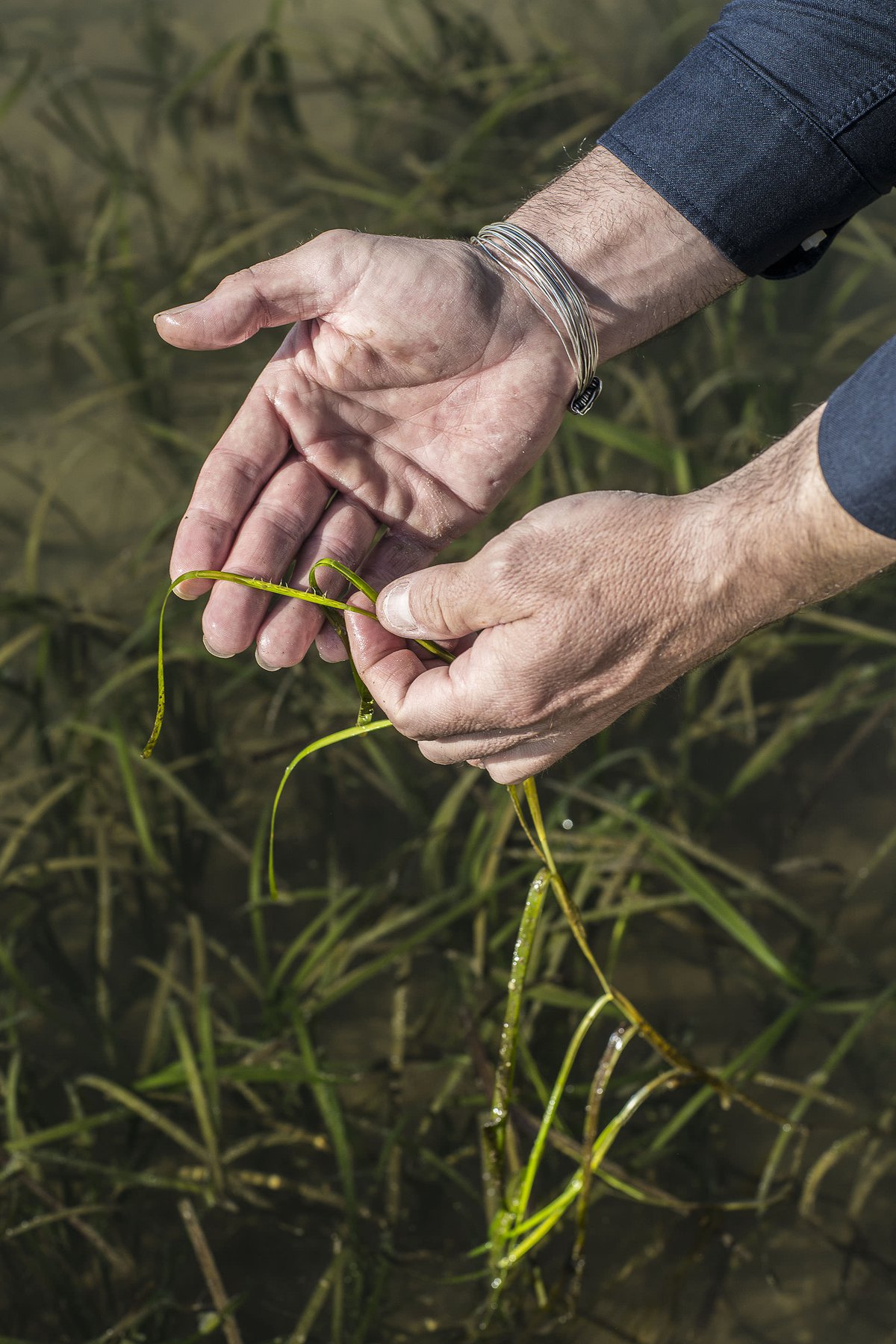
Sea desertification is also a consequence of an homogenous and standardized consumers demand. What’s your answer to impoverishment and homologation?
We always focused on less commercial and local produce, which aren’t commonly requested and are not part of the moment trend or anyway among the usual, canonic favorites. The dramatic lack of choices available is a silent and ruthless environmental killer.
Then we expanded our sight, remaining in the same trace, from the halophyte plants of our marshes to the impressive plankton.
It’s an act of individual responsibility, a commitment towards yourself, a gift to future generations. Understanding biodiversity is, again, the necessary step to create a less destructive chain.
Wether is a vegetable, a fish or a piece of meat we need to remember how the mandatory factors are proximity and variety: we need to take a step back from the same two or three options the market gives us and explore the ecosystems in our home surroundings.
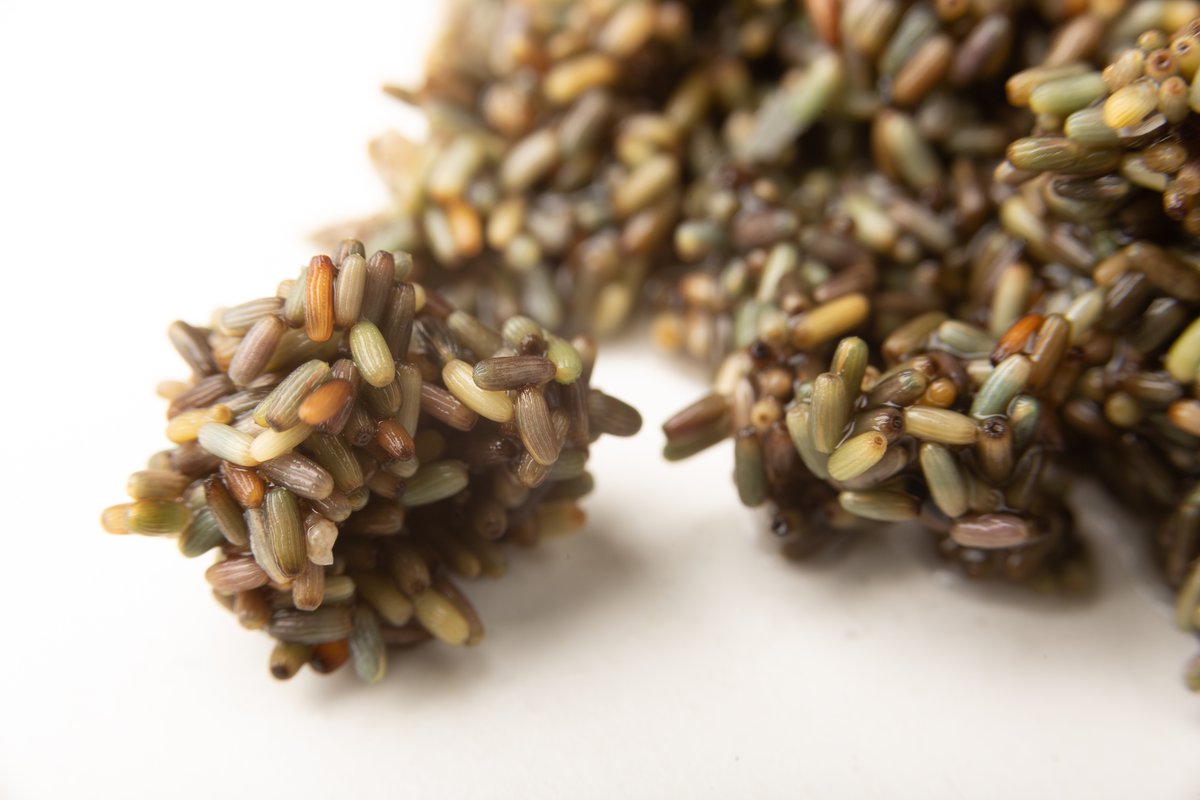
Ethical fishing: can we dialogue with the industries?
At Aponiente, since day one, we opted for sustainable fishing methods, ancient and artisanal.
Around the Cádiz abandoned salt pans you can see natural pools, where marine creatures proliferate. Throughout a system of dams, fishes remain trapped in what I like to define a “spa”: thanks to a calm life without predators they will grow rich in fat and we will find a particularly rich taste and texture.
This was just one example of how fishing methods can be ethical and moderated.
Logically the industry needs to continue and enlarge these small actions, to confirm them, otherwise all the efforts will be futile.
It is also true that we are unsustainable in almost every aspect of our life: we would need to reform every little action. Nerve-wracking, probably, but we must calculate how high the price of laziness will be.
I see it as a mutual relationship, where some citizens lead the change, and big corporations allow the rest of the society to adapt itself.
Our field is nowadays very popular and chefs should use the spotlight to be the messengers, to carry the duty.
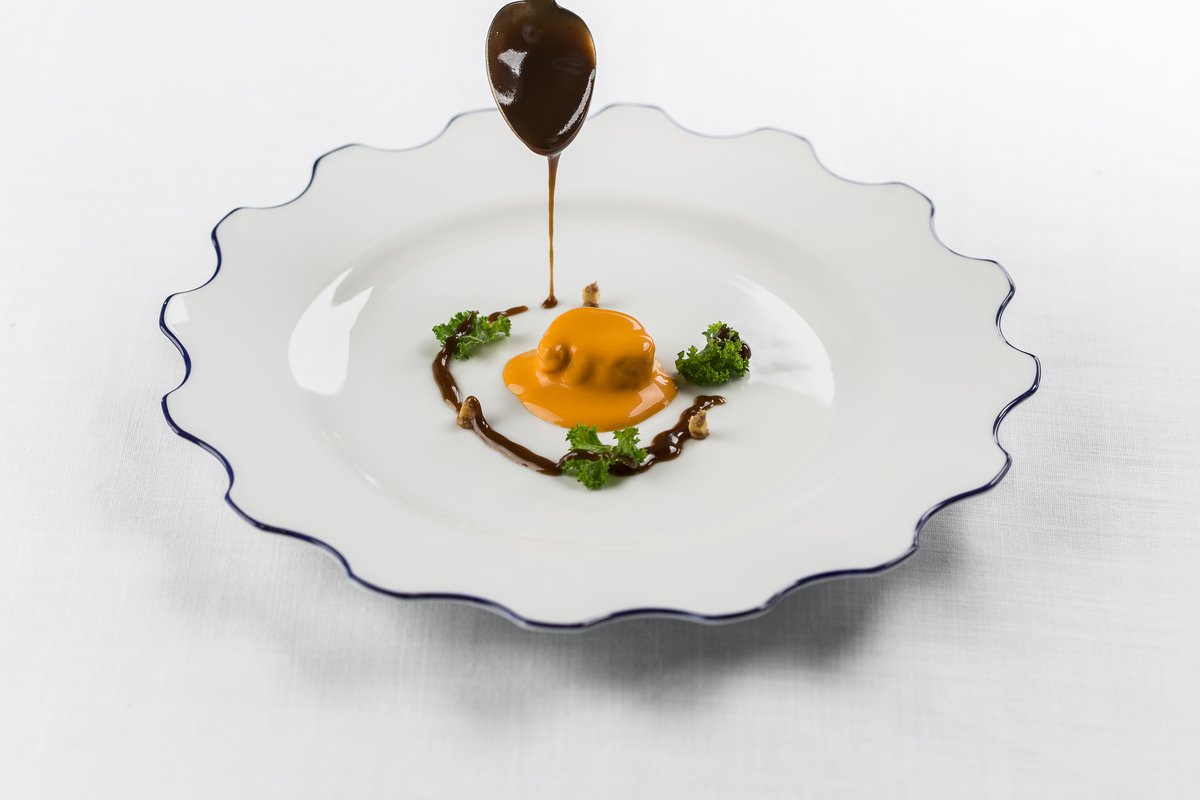
Here is how the sea gains a whole new meaning, a very important one.
Let’s start to perceive it not only as a scary dark hole or as a summer entertainment, but also as an infinite yet delicate universe of opportunities.
Ángel León works obsessively with the sea, but he feels like a kid: it’s a natural extension of his being-human, his feeling-alive, it is life for him. And life asks for itself, exists, everywhere you have the bare minimum conditions.
Shouldn’t we claim this life back? Shouldn’t we remember, between virtual projections and sterile socializations, of our body and our soul? Isn’t it a paradox, to force ourselves in creating protection labels to exclude produce from chemicals and unethical behaviors?
We contaminated nature and now we want it back, we don’t want our hybrids anymore.
Being evolved, in history, also meant to review our steps and admit mistakes, meant to stop our actions.
Let’s feel like kids, like León, kids: let’s try to invert the process and look at this different world with curiosity, fascination and, well, awareness: because we are not really kids, we are responsible. We would appreciate how beauty is, after all, closer than we think.
